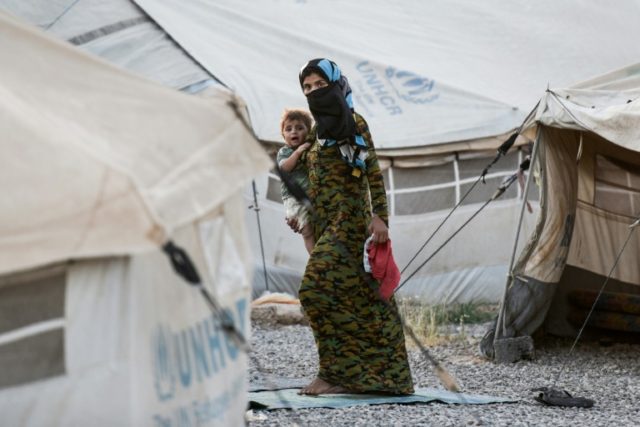WASHINGTON, DC — Islamic State (ISIS/ISIL) jihadist have placed “mines in baby formula” that continue to be used as booby traps scattered across their former “capital” of Raqqa, Syria, warned a former Pentagon official who recently visited the nation.
During a panel discussion hosted by the Foundation for Defense of Democracies (FDD) think tank on Wednesday, Melissa Dalton, a national security expert at the Centers for Strategic and International Studies (CSIS) who has held various positions at the Pentagon, indicated that Raqqa remains a “deadly labyrinth,” months after it was liberated.
Dalton, who recently visited Syria with Gen. Joseph Votel, the top American commander in the region, urged the international community to assist the United States in their “rubble clearing” and “de-mining” efforts that are “vital” for residents to return to Raqqa, adding:
When ISIS left Raqqa it completely booby trapped the place—placing mines in baby formula, in people’s ovens, in civilian homes such that making the place quite untenable for any follow on governance that might attempt to emerge there.
Currently, she noted that the estimated 2,000 U.S. troops who are still in Syria are primarily focused on concluding the “counter ISIS campaign,” noting that “there are still some hardened cells of ISIS” in the country.
Citing the international humanitarian group Doctors Without Borders, Breitbart News reported late last year that the fallen caliphate’s capital Raqqa was still “littered with booby traps, land mines, and discarded munitions” weeks after the region’s official liberation date in October.
Soon after the U.S.-led alliance and local forces liberated the city, Voice of America (VOA) reported that residents had to wait before returning, noting that “coalition officials say the problem comes from potentially thousands of improvised explosive devices (IEDs) and booby traps littered across the city, some already taking a toll.”
Gen. Votel, the head of U.S. Central Command (CENTCOM), confirmed to lawmakers this week that the terrorist group has lost “more than 98 percent of the territory in Iraq and Syria formerly held by ISIS is no longer under their control.”
Nevertheless, the top general acknowledged that the group remains a threat, echoing the U.S. intelligence community’s latest Worldwide Threat Assessment unveiled earlier this month.
In the analysis presented to Congress, the U.S. Director of National Intelligence (DNI) notes:
Over the next year, we expect that ISIS is likely to focus on regrouping in Iraq and Syria, enhancing its global presence, championing its cause, planning international attacks, and encouraging its members and sympathizers to attack in their home countries … ISIS core has started—and probably will maintain—a robust insurgency in Iraq and Syria as part of a long-term strategy to ultimately enable the reemergence of its so-called caliphate.
“This activity will challenge local CT [counterterrorism] efforts against the group and threaten U.S. interests in the region,” adds the assessment.

COMMENTS
Please let us know if you're having issues with commenting.